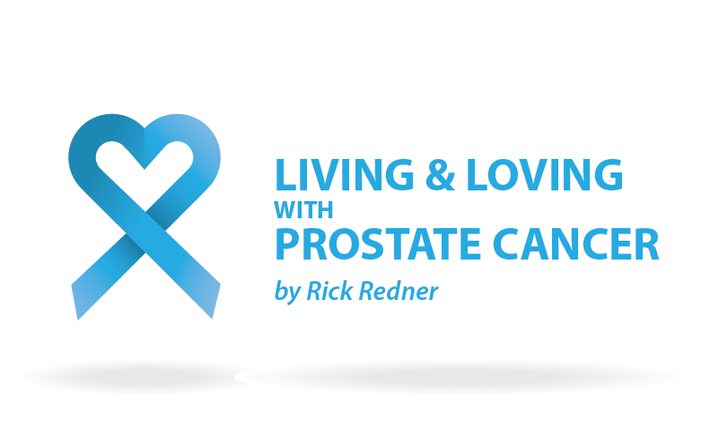
According to the American Cancer Society prostate cancer is the third leading cause of cancer death in American men, behind only lung cancer and colorectal cancer. About one man in 39 will die of prostate cancer.
In addition, the number of younger men diagnosed with prostate cancer has increased nearly six-fold in the past 20 years. Prostate cancer is more likely to be aggressive in these younger men, according to an analysis from researchers at the University of Michigan Comprehensive Cancer Center.
In 2012 The U.S Preventive Services Task Force came out against prostate cancer screening. They made this recommendation to protect men from choosing unnecessarily aggressive treatments that result in permanent and devastating quality-of-life issues. The unspoken assumption here is the best way to prevent men from making bad treatment decisions is to keep them in the dark about prostate cancer.
Unfortunately, many doctors continue to follow this recommendation. They don’t offer their patients the opportunity for prostate cancer screening. Most men are either unaware, or glad to skip this part of an exam.
There’s a good reason and explanation why men tend to over-treat their cancer. There’s something crucial that should be treated before prostate cancer. It’s an emotion that’s usually ignored. That emotion is FEAR.
When I was diagnosed with prostate cancer, I was convinced I was given a death sentence. The idea that I could survive prostate cancer never occurred to me. In this state of fear, I wanted the most aggressive treatment available in order to buy as much time as possible.
No one asked me about the people I knew with cancer who died within a year of their diagnosis. No one knew that I thought I’d die from prostate cancer. No one corrected my misperceptions or helped me cope with my fears.
In an article I wrote for Alternative Medicine Magazine, I proposed a way to help men get past their fears in order to make the best treatment decisions available. This makes infinitely more sense than keeping men in the dark by doing away with screening.
I believe insurance companies could save millions of dollars every year if they’d provide men newly diagnosed with prostate cancer three one-hour sessions with a healthcare professional, such as a nurse or medical social worker.
Session #1
The goal of this session is to help men (and their loved ones,) process their past experiences with cancer with a goal of helping men understand the difference between their perception and past experience with cancer vs. their current situation. Introducing the possibility that it’s possible to survive a diagnosis of prostate cancer without aggressive treatment is important for men to hear — after their fears are adequately addressed.
Session #2
The second session takes place after a Gleason Score and other test results are available. In this session the patient is given specific information about their prostate cancer. Here the patient is provided with written information to help him understand the aggressiveness, or lack thereof, regarding his prostate cancer.
Session #3
Involves a discussion of the various treatment options and the quality-of-life issues that arise from the various treatment options. A decision to how to treat their prostate cancer is made some time after this information is given to the patient. If there are further questions, or a need for a referral, these issues are resolved after Session #3.
It’s well documented that fear-based decisions result in overly aggressive and unnecessary treatment that does not prolong life, and leaves men with lifelong quality-of-life issues, such as the loss of urinary control or erectile dysfunction.
Treating fear before cancer provides men with the opportunity to base their treatment decisions on their diagnosis rather than their fears.
What are your thoughts about the benefits of treating fear before treating prostate cancer?
Note: Prostate Cancer News Today is strictly a news and information website about the disease. It does not provide medical advice, diagnosis, or treatment. This content is not intended to be a substitute for professional medical advice, diagnosis, or treatment. Always seek the advice of your physician or other qualified health provider with any questions you may have regarding a medical condition. Never disregard professional medical advice or delay in seeking it because of something you have read on this website. The opinions expressed in this column are not those of Prostate Cancer News Today, or its parent company, BioNews Services, and are intended to spark discussion about issues pertaining to prostate cancer.


“The unspoken assumption here is the best way to prevent men from making bad treatment decisions is to keep them in the dark about prostate cancer.”
How wrong can you be. No-one is suggesting men should be kept in the dark about about prostate cancer. In fact, men being kept in the dark about prostate cancer is one of the reasons that PSA screening has been such a large scale disaster. This is because usually men who have been given PSA screening are told little or nothing about prostate cancer and often they are not even told they are getting PSA screening – until the day their doctor tells them they need to see a urologist because they have a high PSA level and a few short weeks later they are given a biopsy which the urologist tells them shows they have CANCER!
This is nothing less than an ambush. An ambush that happens because men are kept in the dark about prostate cancer and PSA screening. Men are kept in the dark by not being told that PSA has never been shown to lead to a net saving of lives compared with usual care anywhere. And neither are men told that a reduction in disease specific mortality has only ever been demonstrated in two countries and is highly inconsistent with every other country. The understanding of these issues can take years, not the few weeks between high PSA results and biopsy results when the only advice may be from financially conflicted urologists.
So men ARE being kept in the dark about prostate cancer in a very serious way but not in the way your statement implies they are.
“There’s a good reason and explanation why men tend to over-treat their cancer.. That emotion is FEAR.”
You failed to mention a much more important reason why men are over-treated by their urologists for prostate cancer. That reason is the financial conflict of interest of the urologist who is advising them to use his services.
“When I was diagnosed with prostate cancer, I was convinced I was given a death sentence. The idea that I could survive prostate cancer never occurred to me.”
Yes. You had certainly been kept in the dark by all the medical professionals advising you. That was shameful of them.
“The second session takes place after a Gleason Score and other test results are available.”
This is simply far, far too late. Very few men would be capable of coming to a good understanding of what PSA/biopsy results mean when they are under the pressure of a prostate cancer diagnosis, especially if the urologist simply (and shamefully) asks them WHEN (not if) they want their prostatectomy. Men should be given information based on the Cochran Review of PSA screening trials before they even start PSA screening. Men should be at least 55 years old when and if that happens. That’s more than old enough to have had enough time to learn about prostate cancer and PSA screening.
“The unspoken assumption here is the best way to prevent men from making bad treatment decisions is to keep them in the dark about prostate cancer.”
Yes!! You have hit the nail on the head. This is exactly what happened to my husband. Five years ago, the GP decided to stop screening all men. He didn’t mention the option of screening to allow for an informed decision. My husband had 2 physicals in the ensuing years and was assured that he was in good health.
When symptoms of PCa begin, it is often too late and this is what happened to my husband.
The tragedy of recurrence and death by PCa due to not being detected early is vastly understated in PSA screening discussions. Do policy analysts think that men actually enjoy living life on testosterone blockers? Do they know about the excruciating pain of dying from cancer in the bones-the most common cause of death of PCa? What about the effect on the family? A very good man well deserving of a nice retirement is denied, a loving wife left a lonely widow decades before statistics would predict and the worst part is lost legacy- grandchildren who will never know their grandfather.
Screening guidelines focus on infection from biopsy and the possibility of unnecessary surgery. My husband would gladly trade his diagnosis in for 100 infections and 100 unnecessary surgeries. All of these events are only temporary.
I believe that the decision to stop screening (head-in-the-sand medicine) will go down as one of the stupidest actions ever taken in medicine.
Very sorry for your loss. What happened to you was awful and unnecessary. I fear your tragedy must be repeated with tens of thousands of couples before it reaches a statistically significant level. Until then, policy makers will continue to insist the Task Force recommendations are saving men from unnecessary treatment. It’s maddening and tragic this is the status quo. The good news is new research is beginning to emerge:
https://goo.gl/JkJ4oY
I hope it won’t be too long before policy makers understand what they’ve done.
“The good news is new research is beginning to emerge:
https://goo.gl/JkJ4oY ”
The vast majority of the increase in metastatic prostate cancer in 55-69 year olds in that study occurred by 2010 which was long before the USPSTF made its recommendation regarding PSA screening for 55-69 year olds in 2012. Thus the large increase in metastatic prostate cancer among 55-69 year olds before 2010 could not possibly have had anything to with reductions in PSA screening among that age group that occurred years later.
The sad fact is that large variations in metastatic prostate cancer and prostate cancer mortality occur whether changes in PSA screening occur or not.
“100 unnecessary surgeries. All of these events are only temporary.”
Unless they kill you.